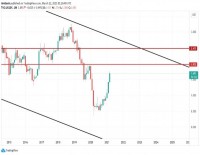|
Opalesque Industry Update -
EDHEC-Risk Institute considers that Germany’s restrictive measures on the sovereign debt markets are counterproductive, inconsistent and liable to hinder European growth On the basis of numerous academic studies, along with its own research, including the position paper published in March 2010 by Professor Abraham Lioui entitled “Spillover Effects of Counter-cyclical Market Regulation: Evidence from the 2008 Ban on Short Sales,” EDHEC-Risk Institute considers that the unilateral measures taken by Chancellor Merkel on the sovereign debt markets, both on the short selling of sovereign bonds and credit default swaps (CDS), are counterproductive, inconsistent and liable to hinder European growth. Counterproductive Besides the fact that the lack of convergence on these issues with the US authorities leaves little hope of the measures being effective, EDHEC-Risk Institute thinks that this ban poses numerous problems and runs up against legal and practical obstacles that make it inapplicable or even counterproductive:
It will be impossible for intermediaries and ultimately for regulators to verify investors’ holdings of the securities representative of the risk the credit default swaps are assumed to cover. Inconsistent Even while European Commissioner Michel Barnier, in a letter to Professor Noël Amenc, Director of EDHEC-Risk Institute, on May 5, 2010, was confirming that “a group of experts from the Commission has been given the mission of studying the effects of CDS on price formation and the liquidity of the underlying bond market,” Chancellor Merkel’s unilateral decision, which renders the functioning of the sovereign debt markets responsible for the euro’s difficulties and the increase in the cost of credit for certain European countries, is inconsistent. Once again, financial regulation decisions have been based more on preconceived ideas and populist posturing than on objective analysis of the facts. From that viewpoint, the position of the president of the European Commission who, without concerning himself with the work instigated on the subject by Commissioner Barnier, supports Germany’s reasoning, appears relatively incompatible with the requisite solidarity of the Commission and the consistency of European policy. A hindrance to growth A very strict definition of a naked sale would keep investors who finance public investment or companies that enter into contracts with sovereign nations or with state-owned companies from hedging the default risk of their counterparties. At a time when public-private partnerships and private financing of public infrastructure projects are considered one of the drivers of global growth, making it harder to manage country risk may, at the very least, increase the costs of these partnerships and this financing and, at worst, prove a major hurdle to their development. This limitation on the hedging of risk for companies exporting capital goods, engaged in major international contracts with the public sector, and for the credit institutions that finance them, is of a nature, if it is generalised, to slow down or render more difficult the exports of a large number of countries within the European Union. The following elements can be accessed by pressing [Ctrl] and clicking on the link: Open letter addressed by EDHEC-Risk Institute to European Internal Market Commissioner Michel Barnier on March 15, 2010: Source. Commissioner Barnier’s response on May 5, 2010 (in French): Source. EDHEC-Risk Institute Position Paper “Spillover Effects of Counter-cyclical Market Regulation: Evidence from the 2008 Ban on Short Sales,” March 2010: Source.
|
Industry Updates
Edhec-Risk: Germany’s restrictions are counterproductive
Friday, May 21, 2010
|
|





 RSS
RSS







